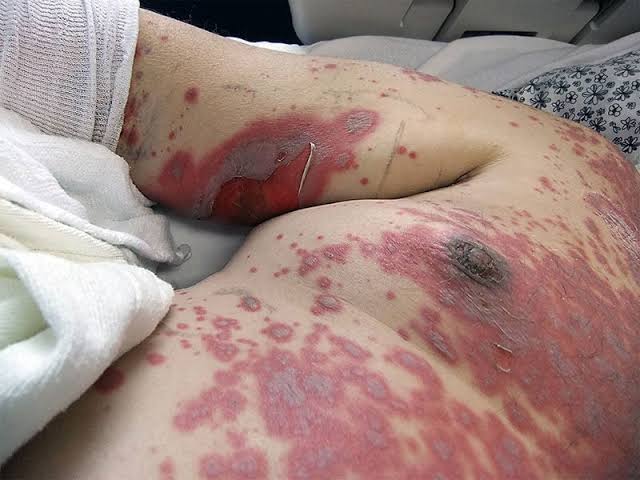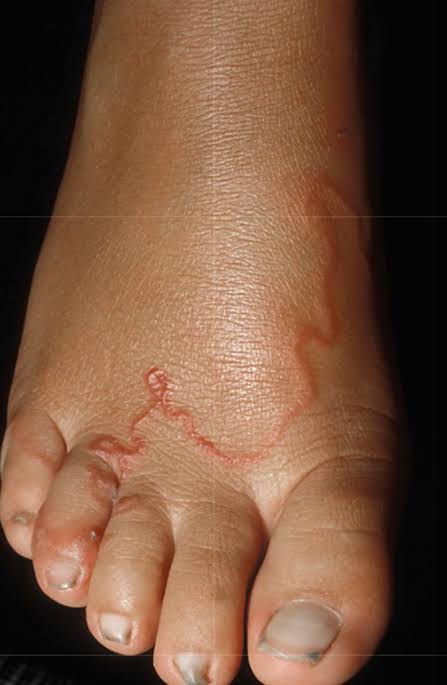Introduction:
Stevens-Johnson Syndrome (SJS) is a rare but potentially life-threatening condition characterized by a severe skin reaction. This article explores the causes, mechanisms, signs and symptoms, drugs associated with SJS, treatment options, and potential complications.

Causes of Stevens-Johnson Syndrome:
SJS can be triggered by various factors, with medications and infections being the primary culprits. Infections like herpes, mycoplasma pneumonia, and medication reactions are common precursors to this serious condition.
Mechanism of Stevens-Johnson Syndrome:
The exact mechanism of SJS involves an immune system response that leads to widespread inflammation. This inflammatory process affects the skin and mucous membranes, causing the severe blistering and peeling characteristic of SJS.
Signs and Symptoms:
Early recognition of SJS symptoms is crucial. Patients may initially experience flu-like symptoms such as fever and fatigue. The hallmark of SJS, however, is the rapid onset of painful, red or purple skin rash that progresses to blisters and detachment of the top layer of skin.
Drugs Associated with SJS:
Numerous medications have been linked to SJS, including some antibiotics, anticonvulsants, and nonsteroidal anti-inflammatory drugs (NSAIDs). Lamotrigine, allopurinol, and sulfonamides are among the medications with a higher risk of triggering SJS.
Treatment Options:
Swift medical intervention is essential when SJS is suspected. Discontinuing the causative medication is the first step. Supportive care, such as pain management and fluid replacement, is crucial. Severe cases may require hospitalization, and in some instances, specialized burn units may be involved.
Complications of Stevens-Johnson Syndrome:
Complications can arise, particularly when SJS progresses to the more severe form known as toxic epidermal necrolysis (TEN). These can include secondary infections, respiratory issues, and long-term skin damage. Timely and appropriate medical care can mitigate these complications.
Conclusion:
Stevens-Johnson Syndrome demands heightened awareness due to its potential severity. Recognizing early symptoms, understanding the implicated drugs, and prompt medical intervention are pivotal in managing this condition. As ongoing research sheds light on SJS, healthcare professionals and the public alike must remain vigilant to ensure swift and effective responses to mitigate the impact of this rare but serious syndrome.

